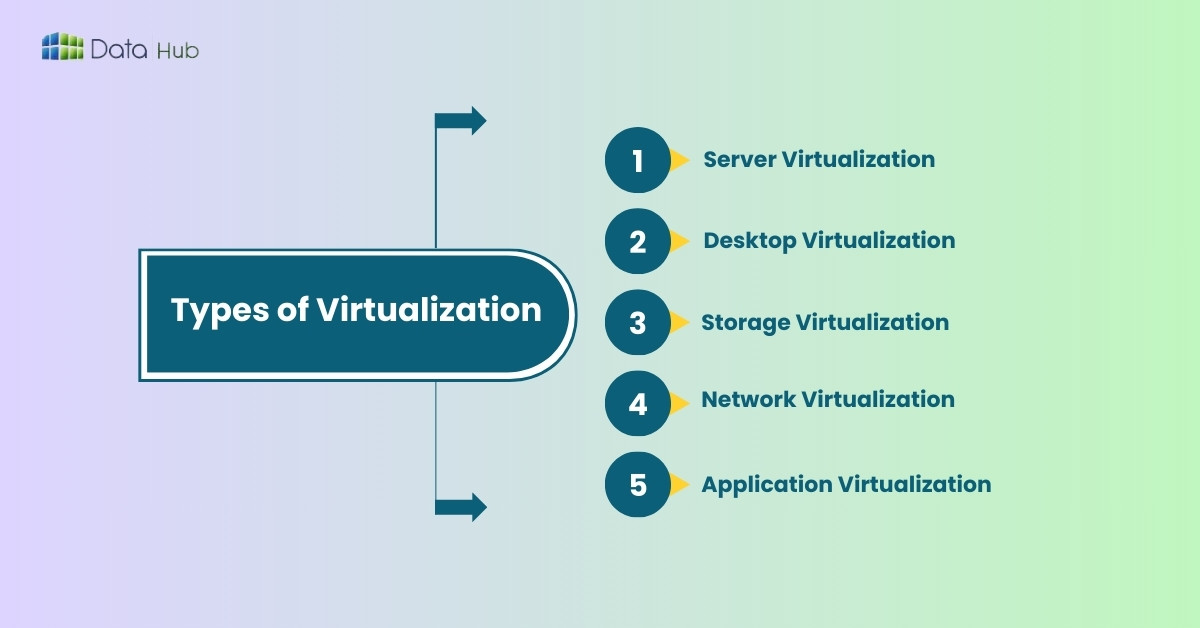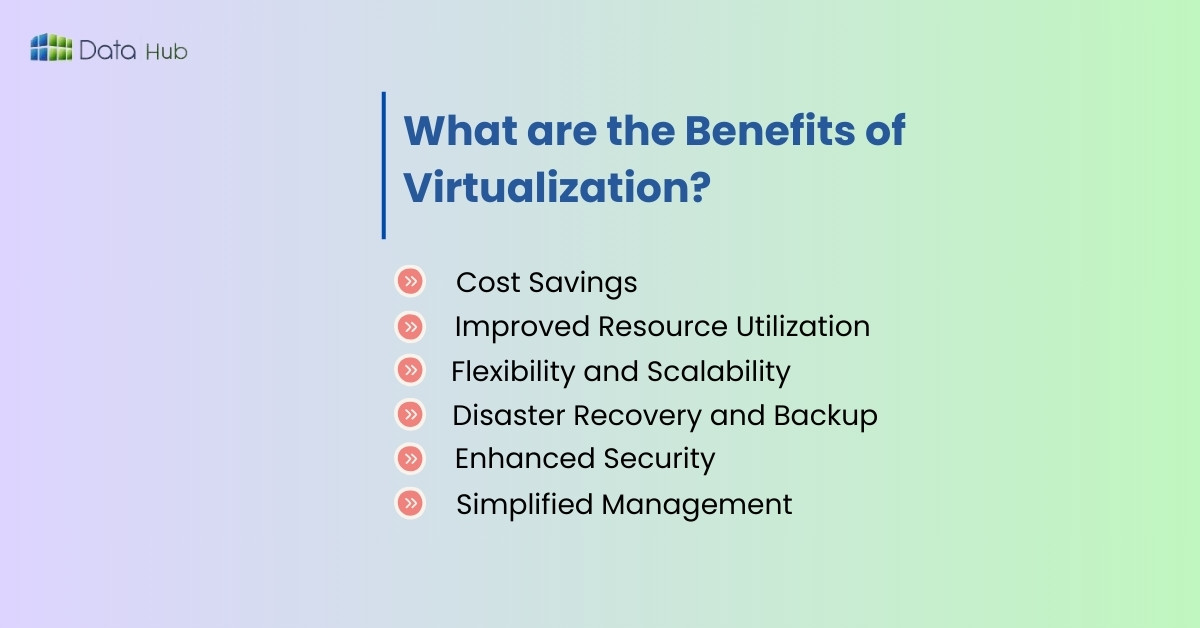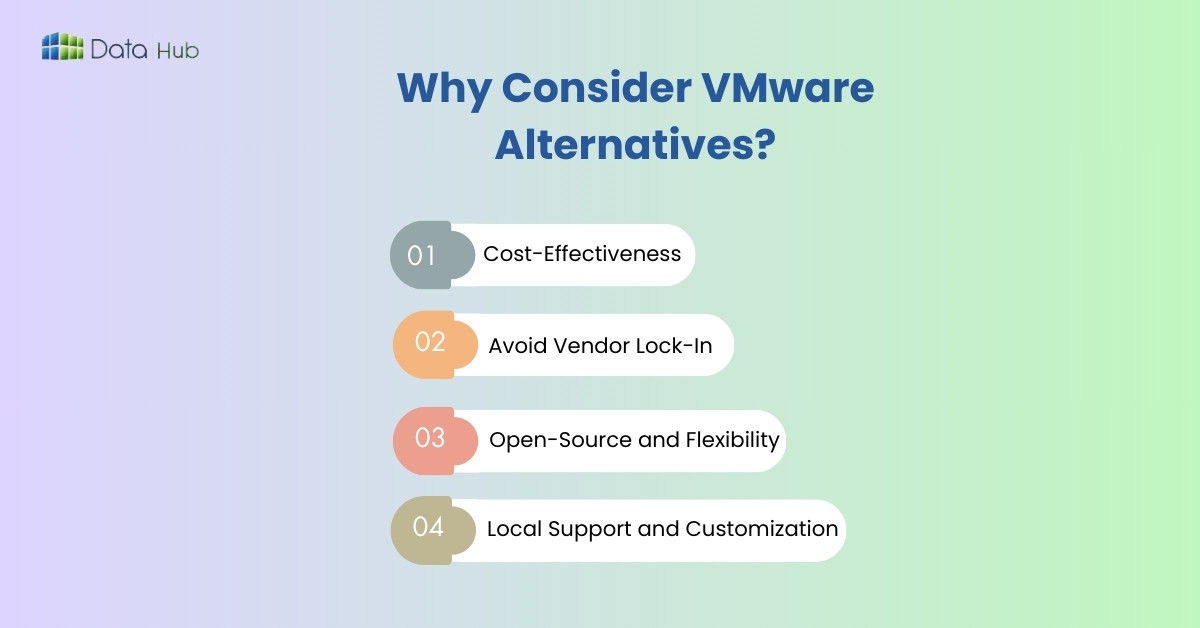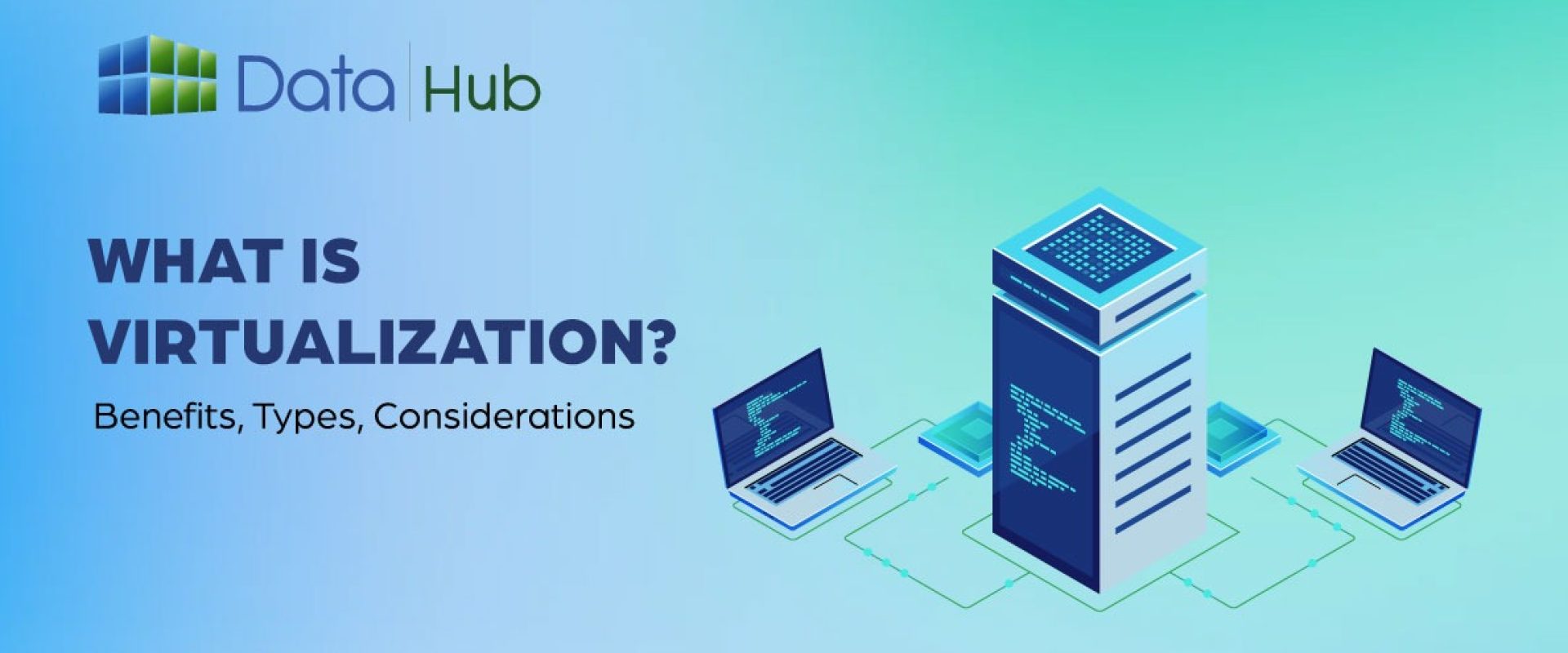Virtualization technology has revolutionized how businesses manage their IT infrastructure.
Virtualization allows organizations to improve efficiency, reduce costs and enhance flexibility by running multiple virtual instances of operating systems, servers and networks on one physical device at the same time.
Virtualization helps organizations optimize efficiency while also cutting costs and increasing flexibility.
Virtualization has become a foundation of data centers, cloud computing platforms and enterprise IT environments worldwide.
In this blog, we will explore what virtualization is, the different types, the benefits it offers, and why “VergeIO” best VMware alternative in Nepal to traditional platforms like VMware.
Table of contents
What is Virtualization?
Virtualization is the process of creating a virtual version of something, whether it’s a server, storage device, network, or application.
Virtualization technology enables a single physical device, like a server, to host multiple virtual environments or virtual machines (VMs), each running its own operating system and applications independently.
Virtualization is powered by a layer of software known as a hypervisor.
The hypervisor manages these VMs and ensures they share the physical resources efficiently.
Organizations can use existing hardware more efficiently while remaining flexible enough to adjust resources as necessary.
Virtualization has taken on new forms. VergeIO mixes the best aspects of traditional virtualization with modern cloud computing features to enable businesses to run their workloads with efficiency and high availability at a fraction of the cost associated with conventional server-based systems.
Types of Virtualization

Virtualization technology comes in various types, each designed to enhance certain elements of IT infrastructure.
Let’s break them down:
1. Server Virtualization:
Server virtualization involves partitioning one physical server into multiple virtual servers or virtual machines that operate independently of each other.
Each virtual machine (VM) can run its own operating system and physical resources such as CPU, memory and storage are allocated based on demand.
Server virtualization is the backbone of modern cloud and data center operations.
Businesses can use one machine to handle diverse workloads without compromising performance.
2. Desktop Virtualization:
Desktop virtualization allows users to access their desktop environment remotely from another location.
The desktop operates within a virtual environment hosted on a central server, allowing employees to connect from any device.
Reduces individual desktop management requirements and supports remote work solutions.
VergeIO makes desktop virtualization more secure and manageable.
As businesses in Nepal and beyond increasingly adopt hybrid and remote work models, VergeIO provides an easy, secure, and scalable desktop virtualization solution to enable employees to work from any location seamlessly.
3. Storage Virtualization:
Storage virtualization involves abstracting physical storage devices and creating a single, unified storage pool.
Management of storage resources becomes simpler, making allocation and scaling of capacity simpler.
VergeIO ensures data is managed effectively across multiple storage devices, improving overall performance while simplifying backup, recovery and scaling operations.
VergeIO integrates storage with server virtualization capabilities, providing businesses with the ability to optimize both simultaneously.
4. Network Virtualization:
Network virtualization allows multiple virtual networks to coexist on top of physical networks, allowing the separation between them.
This allows organizations to better manage network traffic, improve security, and easily scale their network resources.
With VergeIO, network virtualization is enhanced with modern features such as automated network provisioning and micro-segmentation capability, making it an ideal choice for businesses in Nepal looking to optimize their IT infrastructure.
5. Application Virtualization:
Application virtualization allows programs to run independently from their underlying operating system.
Improve device and operating system compatibility while simplifying deployment.
What are the Benefits of Virtualization?

Problem with the content in image (Water filtration systems?)
Virtualization brings many advantages to businesses.
When combined with solutions such as VergeIO from DataHub Nepal, these benefits become even greater:
1. Cost Savings:
One of the main reasons businesses adopt virtualization is the potential for significant cost savings.
By consolidating physical servers into virtual instances, businesses reduce the need for costly hardware investments.
Virtualization also lowers energy costs since fewer physical machines are running.
VergeIO provides a cost-effective alternative to traditional IT infrastructure.
It helps businesses in Nepal save on hardware, energy, and maintenance costs while offering high performance and scalability.
2. Improved Resource Utilization:
Traditional servers often operate below their full capacity.
Virtualization maximizes hardware utilization by running multiple virtual machines on a single physical machine, ensuring that the hardware resources are fully optimized.
VergeIO excels in this area, allowing businesses to deploy multiple virtual machines with minimal resource waste.
This means better performance for your workloads without the need for additional physical servers.
3. Flexibility and Scalability:
Virtualization provides a level of flexibility and scalability that traditional IT infrastructures cannot match.
Businesses can quickly spin up new virtual machines to handle increased workloads or scale down when demand decreases.
With VergeIO, scaling your infrastructure is as simple as adding more virtual machines.
This makes it ideal for businesses that need to adapt to changing demands quickly, such as those in cloud computing or data centers.
4. Disaster Recovery and Backup:
In case of hardware failure or disaster, virtualization offers robust disaster recovery options.
Virtual machines can be easily backed up, replicated, and restored to new hardware with minimal downtime.
VergeIO integrates disaster recovery tools into its platform, making it simple to recover from system failures and ensuring that critical workloads are protected, even in the face of unforeseen events.
5. Enhanced Security:
Virtual machines are isolated from each other, so a security breach in one VM doesn’t affect others.
This increases security by preventing malware from spreading across your entire network.
With VergeIO, businesses can deploy virtualized environments that are tightly controlled and monitored.
The added layers of security provided by VergeIO make it an attractive option for businesses that prioritize data security.
6. Simplified Management:
Virtualization platforms like VergeIO allow businesses to manage their IT infrastructure from a single interface.
Centralized management improves visibility and control, making it easier to monitor performance, allocate resources, and perform maintenance.
VergeIO offers a user-friendly management console, which simplifies the administrative tasks required to maintain a virtualized environment.
This allows IT teams to focus on more strategic initiatives rather than routine maintenance.
Why Consider VMware Alternatives?

VMware is one of the most well-known virtualization platforms, but it’s not the only option available.
While VMware offers a robust set of features, there are several reasons why businesses in Nepal might consider an alternative like VergeIO from DataHub Nepal.
1. Cost-Effectiveness:
VMware solutions can be expensive, especially for small and medium-sized businesses. Licensing fees, hardware requirements, and support costs can add up quickly.
VergeIO, on the other hand, provides an affordable alternative without compromising on features or performance.
2. Avoid Vendor Lock-In:
VMware often leads to vendor lock-in, meaning businesses can become dependent on VMware’s ecosystem.
VergeIO offers flexibility, enabling organizations to avoid getting locked into a single vendor and giving them the freedom to customize their virtualization environment.
3. Flexibility:
So, when it comes to scaling in the future, we have the flexibility to scale compute, storage, or GPU resources as needed.
Different types of storage—such as NVMe, SSD, and HDD can be configured into three distinct tiers, and VMs can be assigned to a specific tier based on their workload requirements.
4. Local Support and Customization:
By choosing VergeIO from DataHub Nepal, businesses benefit from local support and customization options that VMware may not offer.
DataHub Nepal understands the unique needs of Nepalese businesses and offers tailored solutions for both performance and cost-efficiency.
What to Look for in a VMware Alternative?
When considering VMware alternatives like VergeIO, businesses should keep the following factors in mind:
1. Compatibility:
Ensure that the alternative solution supports the operating systems and applications your organization uses.
VergeIO offers extensive compatibility with both legacy and modern workloads, making it suitable for a wide range of businesses.
2. Features:
Compare the features of VMware with those of VergeIO.
Check for key virtualization capabilities such as server, storage, and network virtualization, along with disaster recovery, high availability, and resource management features.
3. Cost:
Cost is a critical factor when choosing a virtualization solution.
Consider the total cost of ownership (TCO), including licensing, support, and hardware requirements.
VergeIO offers competitive pricing and a cost-effective alternative to VMware.
4. Scalability and Flexibility:
Ensure that the alternative solution can scale with your business.
VergeIO is built for scalability, allowing businesses to easily expand as their infrastructure needs grow.
5. Support and Community:
Look for a solution with reliable support and an active community.
VergeIO offers dedicated support from DataHub Nepal, ensuring you have the resources needed to troubleshoot and resolve any issues quickly.
Conclusion
Virtualization is an essential technology for businesses that want to optimize their IT resources, reduce costs, and enhance scalability.
VergeIO from DataHub Nepal provides an ideal alternative to traditional platforms like VMware, offering the same advanced features without the high costs.
Whether you’re looking for server, storage, or network virtualization, VergeIO offers a flexible, affordable, and powerful solution for businesses in Nepal.
Consider adopting VergeIO to transform your IT infrastructure and drive business growth with enhanced performance, security, and cost-efficiency.
FAQ
Virtualization lets you run multiple “virtual computers” (called VMs) on a single physical machine, saving space and costs while improving efficiency.
A software called a hypervisor divides the physical server’s resources (CPU, RAM, storage) to create and manage independent VMs.
Yes! Virtualization cuts costs, boosts security, and grows with your business needs.
Absolutely! Desktop virtualization lets employees work securely from anywhere.
VMs can be backed up and restored quickly, minimizing downtime.
DataHub Nepal provides VergeIO with local installation and support.
Ready to cut IT costs and boost performance? Switch to VergeIO from DataHub Nepal: your smarter, more affordable alternative to VMware for virtualization solutions in Nepal. Contact us today to upgrade your infrastructure!


